NDO - On December 14, in Hanoi, Hanoi National University of Education organized the 10th International Conference on Teaching and Learning Science with the theme "Changes in the Science of Learning and Technology".
The conference is held annually at many of the world's leading universities and attracts the participation of hundreds of scholars from the UK, Germany, the US, Korea, Japan, France, Thailand, Spain, China and Vietnam, ... in many fields including psychology, linguistics, cognitive neurology, psychological testing, science education, online learning and educational science, exchanging research results, discussing issues related to the cognitive and learning processes of learners, active teaching methods with technology applications, ...
Speaking at the conference, President of Hanoi National University of Education Nguyen Duc Son said: In an era of unprecedented technological advances and global challenges, understanding and improving learning processes is more important than ever. The conference aims to explore cutting-edge research, innovative methods and practical applications to meet these urgent needs. It is also a platform to discuss the latest findings, research methods and technologies that can drive significant progress in education systems around the world.
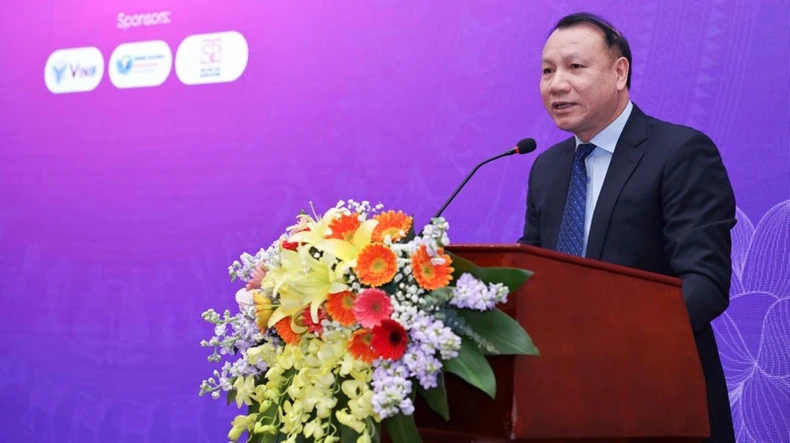 |
President of Hanoi National University of Education Nguyen Duc Son spoke at the workshop. |
Principal Nguyen Duc Son believes that this event will spark profound discussions and meaningful collaborations, creating lasting impact not only in the field of learning sciences but also beyond.
Sharing about the current situation and orientations in preparing teachers for the future of education in Vietnam, Chairman of the Council of Hanoi National University of Education, Associate Professor, Dr. Nguyen Van Hien said: The advancement of technology has become the main driving force for the continuous development of education. This process has led to transformational changes in many aspects of education, especially in terms of goals, content, methods and structure. These changes pose urgent requirements for teacher training programs at pedagogical universities. These programs need to adapt to the changing educational context to fully prepare future teachers for the challenges and opportunities of the 21st century.
Based on the analysis of the latest research published in SCOPUS journals, related to the future of education from the perspective of technology integration, it is shown that digital tools and technologies are increasingly prominent in the educational environment. New pedagogical methods are emerging and gradually becoming popular, notably the trend of personalized learning, where teaching content is adjusted to meet the individual needs of each student.
Additionally, the integration of artificial intelligence in education is becoming more widespread, improving both the learning and teaching experience, while providing effective methods for assessing and tracking student progress. Furthermore, a significant shift is underway towards blended and distance learning models, providing greater flexibility and accessibility to education for students, regardless of geographic location. These trends represent a major shift in the structure, delivery methods, and experience of education.
As a world-leading expert in cognitive neuroscience and psycholinguistics, Professor Kenneth Pugh (Yale and Connecticut Universities, USA) said: An interdisciplinary approach helps build a strong foundation for addressing educational challenges, from personal development to solving broader social problems. Specifically, he analyzed brain imaging studies on language development, reading comprehension and reading disorders in children, thereby making recommendations on adjusting teaching methods according to individual differences in brain organization...
Meanwhile, Professor Ram Frost from the Hebrew University of Jerusalem, a world-leading expert on differences in reading skills across languages, has brought new findings in using statistical learning to explore the impact of the environment on language learning. The environment is constantly changing, and learners are not just passive absorbers of rules. They interact with the environment and choose appropriate cognitive models, so language learning is highly interactive.
The workshop focuses on issues related to the science of advanced teaching processes such as Science teaching, STEM/STEAM education, application of information technology and use of artificial intelligence in language teaching, interdisciplinary application between linguistics and neuroscience... From multi-dimensional discussions on the cognitive process of learners, the workshop will provide comprehensive and in-depth approaches to the science of the teaching process, thereby proposing solutions to improve teaching effectiveness, especially advanced teaching methods.
This year's conference attracted more than 200 domestic and foreign scientists to submit papers. The organizing committee selected 12 oral presentations and 44 poster presentations to be displayed at the conference.
Source: https://nhandan.vn/hon-200-nha-khoa-hoc-trong-nuoc-va-quoc-te-thao-luan-de-xuat-giai-phap-nang-cao-hieu-qua-day-hoc-post850472.html


![[Photo] Prime Minister Pham Minh Chinh meets with US business representatives](https://vphoto.vietnam.vn/thumb/1200x675/vietnam/resource/IMAGE/2025/5/13/5bf2bff8977041adab2baf9944e547b5)
![[Photo] Prime Minister Pham Minh Chinh receives Ambassador of the French Republic to Vietnam Olivier Brochet](https://vphoto.vietnam.vn/thumb/1200x675/vietnam/resource/IMAGE/2025/5/13/f5441496fa4a456abf47c8c747d2fe92)

![[Photo] President Luong Cuong attends the inauguration of the international container port in Hai Phong](https://vphoto.vietnam.vn/thumb/1200x675/vietnam/resource/IMAGE/2025/5/13/9544c01a03e241fdadb6f9708e1c0b65)


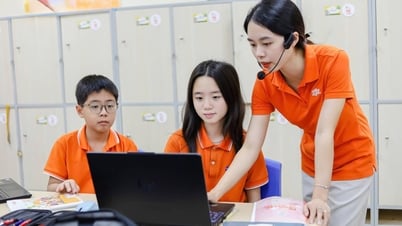

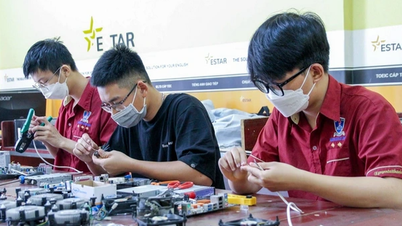


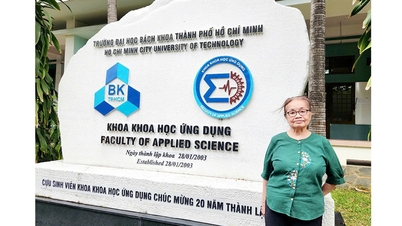

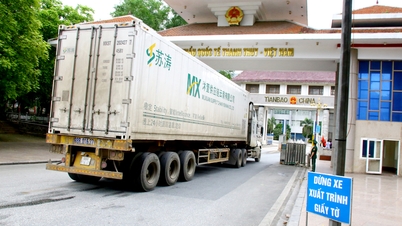

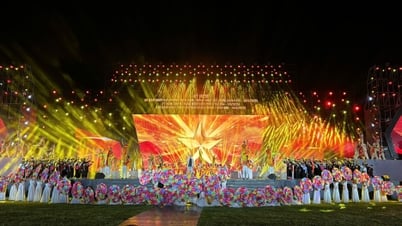

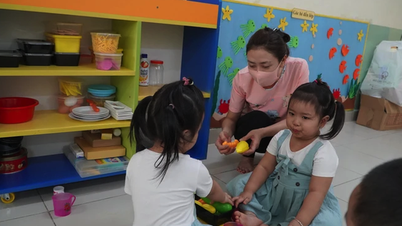
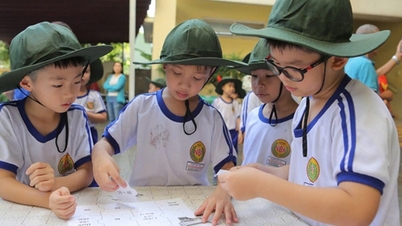
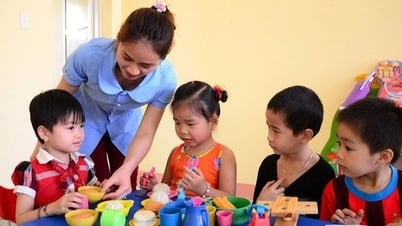
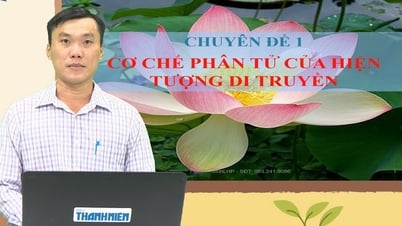
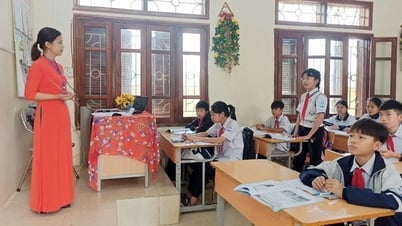
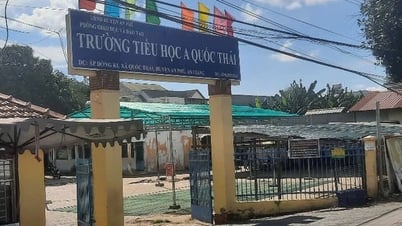





![[Video] "A corner of Dalat in the heart of Hanoi"](https://vphoto.vietnam.vn/thumb/402x226/vietnam/resource/IMAGE/2025/5/13/1054f503cd7445d7a031b381373aaed4)
![[Photo] Prime Minister Pham Minh Chinh receives Ambassador of the French Republic to Vietnam Olivier Brochet](https://vphoto.vietnam.vn/thumb/402x226/vietnam/resource/IMAGE/2025/5/13/f5441496fa4a456abf47c8c747d2fe92)

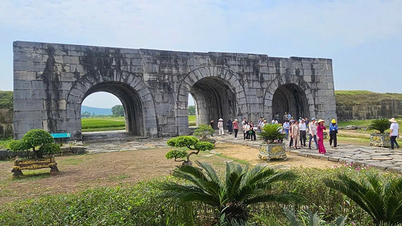
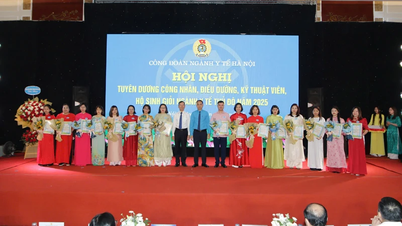














































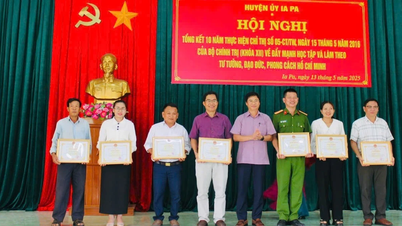

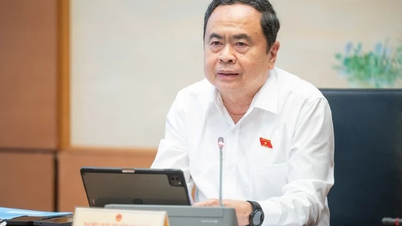
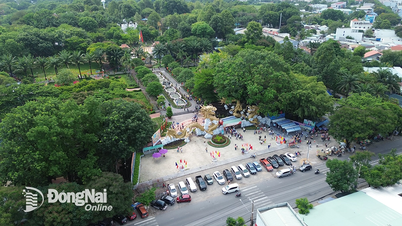


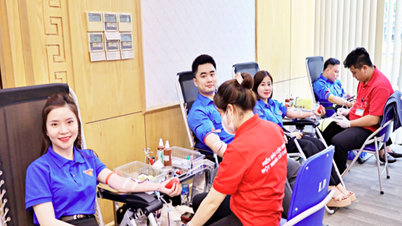













Comment (0)